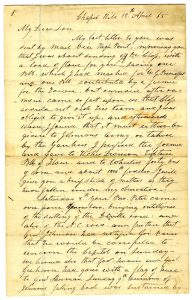
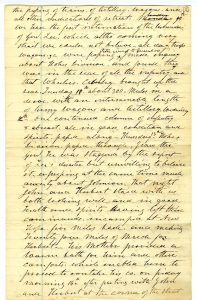
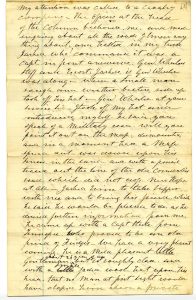
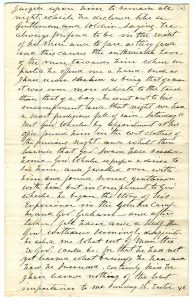
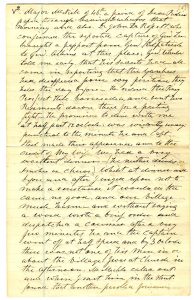
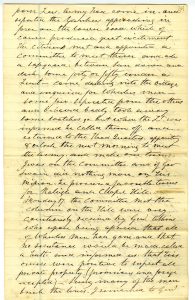
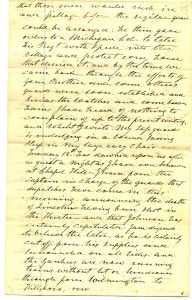
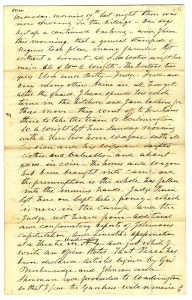
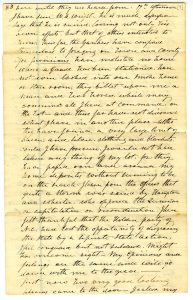
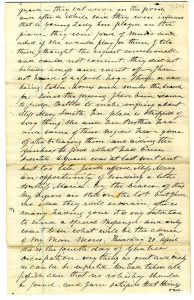
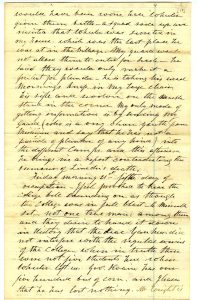
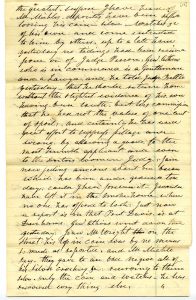
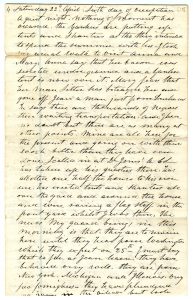
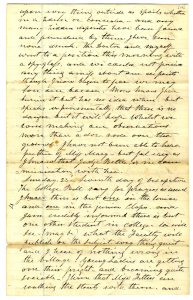
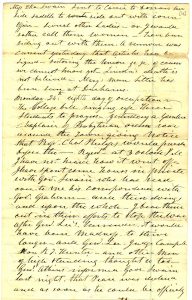
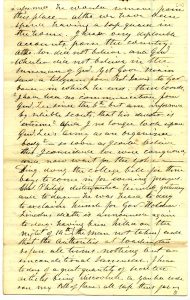
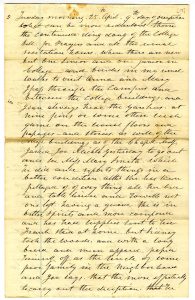
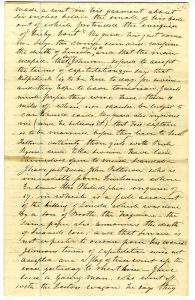
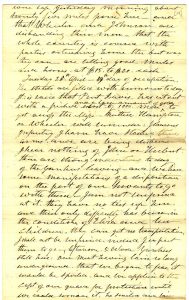
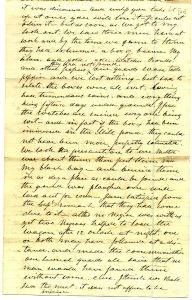
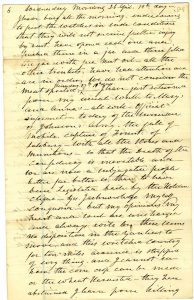
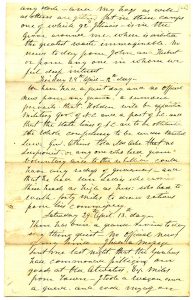
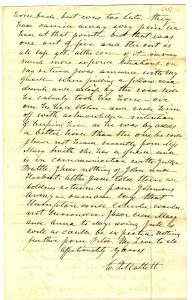
Harrison Moyle
10/10/18
The primary source I thought accurately depicted just how important food was during the Civil War, specifically in Chapel Hill and the Durham area was a letter from Charles P. Mallet to his son Charles B. Mallet. The letter is from April 18, 1865 and he describes the Confederate retreat from Chapel Hill and the Union occupation that followed. It was interesting to read how the valuables that were getting pillaged and protected during this time were mostly money, horses and livestock, and food and grains in general. The Union Army had to assign guards to protect the personal property of civilians in Chapel Hill it got so bad.
The letter begins by saying how Charles Mallet sent his son a load of flour, and describing how he had to give up “18 Blbs. of flour and forty bus. of corn and about 1000 lb fodder.” This shows just how important it was at the time to feed the Union army at this time in Chapel Hill as they took the town from the Confederacy. It also describes the types of crops being grown in Chapel Hill at the time, it seems like there was a lot of fodder and corn. These simple crops were probably applicable to a lot of recipes during this time that were cheap to make, such as bread and biscuits, as well as corn and any type of food that involves simple grains. This could have also been used to feed livestock at the time. It is also mentioned in this letter how when the guards were ransacking for food, “they found a very large amt of bacon;” suggesting that bacon was also prevalent during this time even during war. It goes on to describe how the bacon was preserved, mentioning how it was preserved underground for ten days and how it came from a smoke house. This suggests that meat was smoked during this time in Chapel Hill and then buried underground for a certain amount of time to keep it from spoiling. This was also big for the people of Chapel Hill at this time since the Yankees which were looting did not think to look underground for food, and mostly got the food out in plain sight. This source further describes how neighbors of Charles did not lose any food because they buried it for preservation during this time.
References
Peter Mallett Papers (#480), Southern Historical Collection, University of North Carolina at Chapel Hill.
https://blogs.lib.unc.edu/civilwar/index.php/2015/04/18/18-april-1865/
Mallett, C. B., 1845-1868
Digital version: Excerpts from the letter of Charles P. Mallett to Charles B. Mallett, 18 April 1865